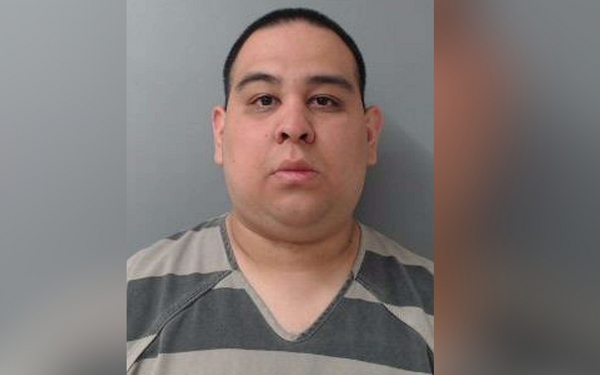
Six years ago, Diana Galicia and Salvador Corona quit their jobs, cashed out their retirement savings and opened a coffee shop on 18th Street in Pilsen.
The move paid off: La Catrina — named after Mexico’s grand dame of death — became a neighborhood staple soon after opening on International Women’s Day in 2013. Artists, politicians and teachers from nearby Joseph Jungman Elementary were regulars. Vendors turned the café into a street market almost every weekend.
“We wanted to create a space for the community to come in and enjoy,” said Galicia who, like Corona, grew up in Pilsen. “Nothing else mattered.”
Sunday was the couple’s last day at the café. In October, Galicia and Corona are heading back to Mexico, where both were born, with plans to open a café there soon.
/cdn.vox-cdn.com/uploads/chorus_asset/file/19222438/IMG_9017.jpg)
Going to Mexico with Galicia and Corona will be Paola Zamora-Rojas, 25, and their granddaughter, Olivia, 2. Zamora-Rojas was engaged to Galicia and Corona’s only son, Gabriel Cisneros, before he died of an accidental heroin overdose in the café on Mother’s Day in 2016. He was 22.
Cisneros worked as a barista at the café and was involved in many art projects across the neighborhood.
Zamora-Rojas was three months pregnant with their daughter at the time of his death. Within weeks, she took over Cisneros’ shifts at the café.
“It’s the only thing that made sense,” she said.
/cdn.vox-cdn.com/uploads/chorus_asset/file/19222461/gabriel_la_catrina.jpg)
Zamora-Rojas was born in Mexico and grew up in Pilsen after being brought into the United States at age 2. She has continued to live here without legal authorization, something she had planned to address after the wedding. Cisneros’ untimely death, however, proved hard to overcome.
“I didn’t have the emotional strength to go through the entire process of getting everything fixed,” she said.
A year ago, Zamora-Rojas started to seriously consider moving to Mexico with her daughter. She wants to go back to school and become a dental hygiene technician but her immigration status would make most financial aid unavailable.
“I can’t do everything I need to do here because of a lack of papers,” she said. “I don’t want to work a dead-end job forever.”
Earlier this summer, she told Galicia and Corona about her plan to move to Mexico. They immediately jumped on board.
Both were born in Mexico and became permanent U.S. residents in the 1990s. For awhile, they had toyed with the idea of taking their business across the border, so when Zamora-Rojas told them she was moving to Mexico, “we already felt like it was the right time to leave,” Galicia said.
They plan to move to the capital of the Mexican state of Guanajuato, where Corona is from.
/cdn.vox-cdn.com/uploads/chorus_asset/file/19222466/Paola_Olivia.jpg)
La Catrina was on the ground floor of an apartment building at 1011 W. 18th St.
The café featured several Mexican-inspired menu items like chorizo breakfast burritos and the “Dirty Abuelita,” made with Mexican hot chocolate, a shot of espresso and topped with cinnamon and whipped cream. Spanish pop and rock music often played; and its walls were covered with pieces by local artists.
Six months after opening in 2013, Galicia and Corona added a small stage and patio to a storefront on the east end of the building. Dozens of artists, musicians, and community leaders used the space throughout the years, including Ald. Byron Sigcho-Lopez, who kicked off his campaign at the café last summer.
In March, their landlord increased the rent. Galicia and Corona signed a new lease but downsized, losing the performance area and patio.
“Once we lost that space, things just weren’t the same,” Galicia said.
/cdn.vox-cdn.com/uploads/chorus_asset/file/19222515/IMG_5854.jpg)
The building’s landlord is in negotiations to sell the café soon, according to Galicia, and is keen on keeping La Catrina’s mural on its front walls painted by local artist Sal Vega.
Dozens of family friends, and former employees came to say goodbye to La Catrina Café on Sunday. Aside from their most popular drinks, the café also served bowls of Galicia’s award-winning green and red mole, and vendors from the neighborhood set up shop one last time.
Pablo Serrano, an artist and DJ who grew up in Pilsen and lives blocks away from the café, praised Galicia and Corona for a creating a community gathering space that kept true to the neighborhood’s Mexican-American roots.
“To pull that off without being corny or commercial is no small feat,” he said. “This place was truly for the community. It’s the end of an era.”
Carlos Ballesteros is a corps members of Report for America, a not-for-profit journalism program that aims to bolster Sun-Times coverage of Chicago’s South Side and West Side.







